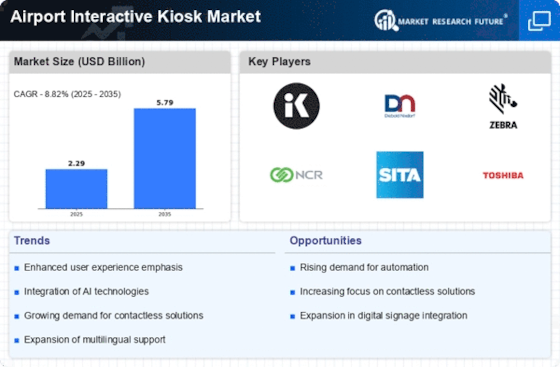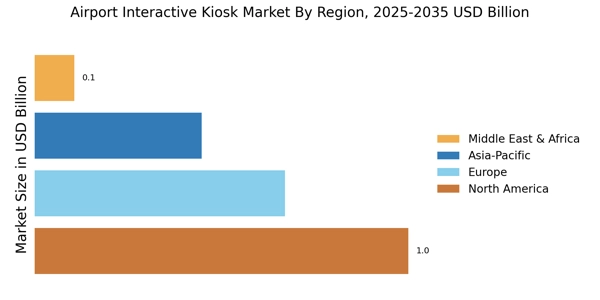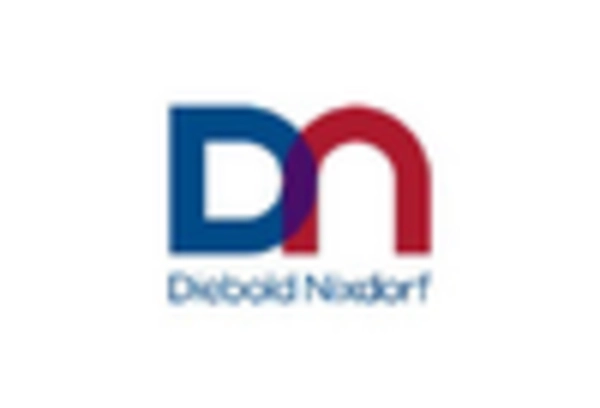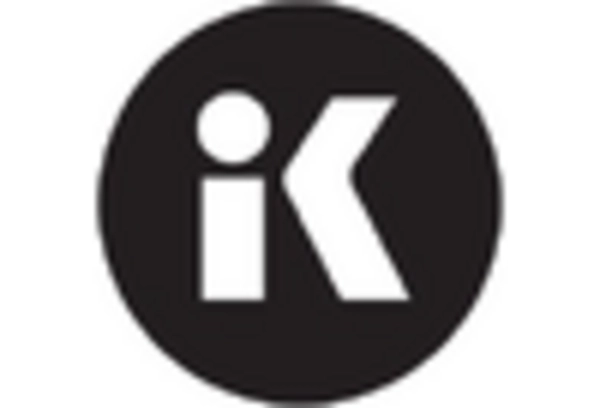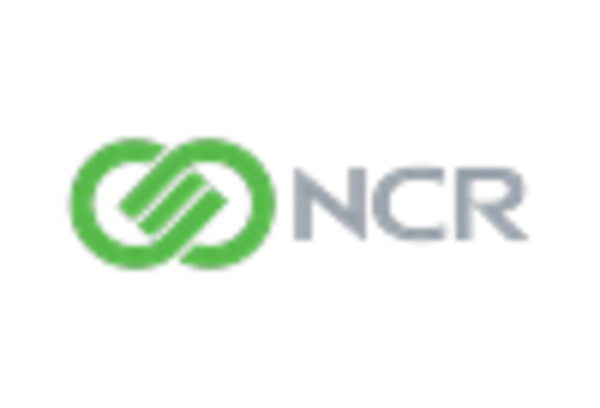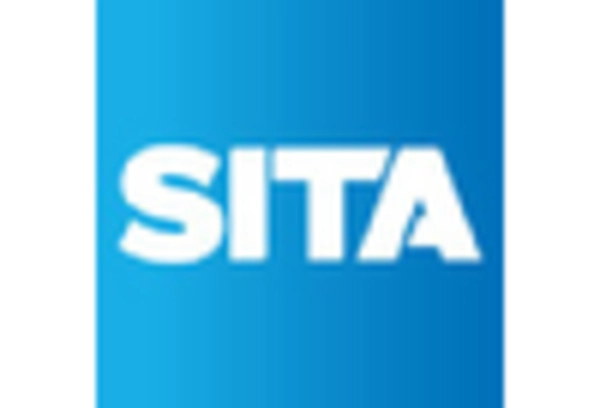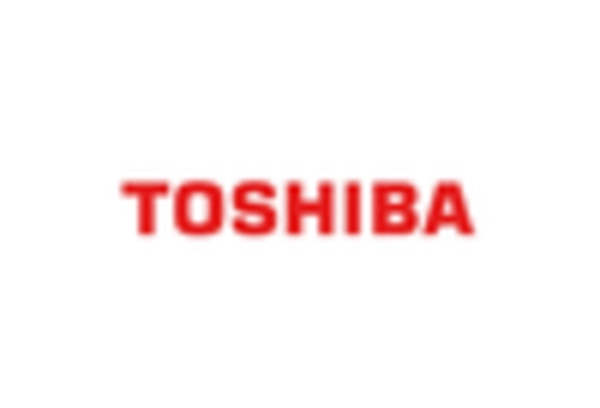Increased Passenger Volume
The airport interactive kiosk Market is poised for growth due to the increasing volume of air travelers. As more individuals opt for air travel, the demand for efficient self-service solutions rises correspondingly. Recent statistics indicate that passenger traffic at major airports has seen a steady increase, with projections suggesting a rise of approximately 30% in the next decade. This surge necessitates the implementation of interactive kiosks to manage check-in, boarding, and information dissemination effectively. Kiosks serve as a vital tool in alleviating congestion and enhancing the overall passenger experience. Consequently, airports are likely to invest more in interactive kiosk solutions to accommodate the growing number of travelers, thereby driving market expansion.
Technological Advancements
The Airport Interactive Kiosk Market is experiencing a surge in technological advancements that enhance user experience and operational efficiency. Innovations such as artificial intelligence, machine learning, and biometric recognition are being integrated into kiosks, allowing for personalized services and streamlined processes. For instance, AI-driven kiosks can analyze passenger data to provide tailored recommendations, thereby improving customer satisfaction. According to recent data, the adoption of advanced technologies in kiosks is projected to increase by 25% over the next five years, indicating a robust growth trajectory for the industry. This trend not only enhances the functionality of kiosks but also positions airports to better manage passenger flow and reduce wait times, ultimately contributing to a more efficient travel experience.
Regulatory Support and Investment
The Airport Interactive Kiosk Market is witnessing increased regulatory support and investment aimed at modernizing airport infrastructure. Governments and aviation authorities are recognizing the importance of self-service technologies in improving operational efficiency and passenger satisfaction. Recent initiatives have led to funding opportunities for airports to upgrade their facilities, including the installation of interactive kiosks. This regulatory backing is expected to catalyze growth in the market, as airports seek to comply with new standards while enhancing their service offerings. With anticipated investments in kiosk technology, the industry is likely to see a significant uptick in deployment rates, further solidifying the role of interactive kiosks in the future of air travel.
Focus on Enhanced Customer Experience
The Airport Interactive Kiosk Market is increasingly focused on enhancing customer experience, which is becoming a critical differentiator for airports. Kiosks are designed to provide seamless interactions, allowing passengers to check in, print boarding passes, and access real-time flight information with ease. This emphasis on user-friendly interfaces and intuitive designs is likely to attract more travelers, as convenience becomes a priority. Data suggests that airports investing in customer-centric kiosk solutions have reported a 20% increase in passenger satisfaction scores. As competition among airports intensifies, the need for superior customer service through interactive kiosks is expected to drive further investment in this sector, thereby fostering market growth.
Cost Efficiency and Operational Savings
The Airport Interactive Kiosk Market is benefiting from the growing recognition of cost efficiency and operational savings associated with kiosk deployment. By automating various processes such as check-in and baggage drop, airports can significantly reduce labor costs and streamline operations. Studies indicate that airports utilizing interactive kiosks can achieve up to 40% savings in operational expenses over time. This financial incentive is compelling for airport authorities, prompting them to adopt kiosk solutions as a means to enhance profitability while maintaining service quality. As the industry continues to evolve, the focus on cost-effective solutions is likely to drive further adoption of interactive kiosks, reinforcing their role in modern airport operations.


